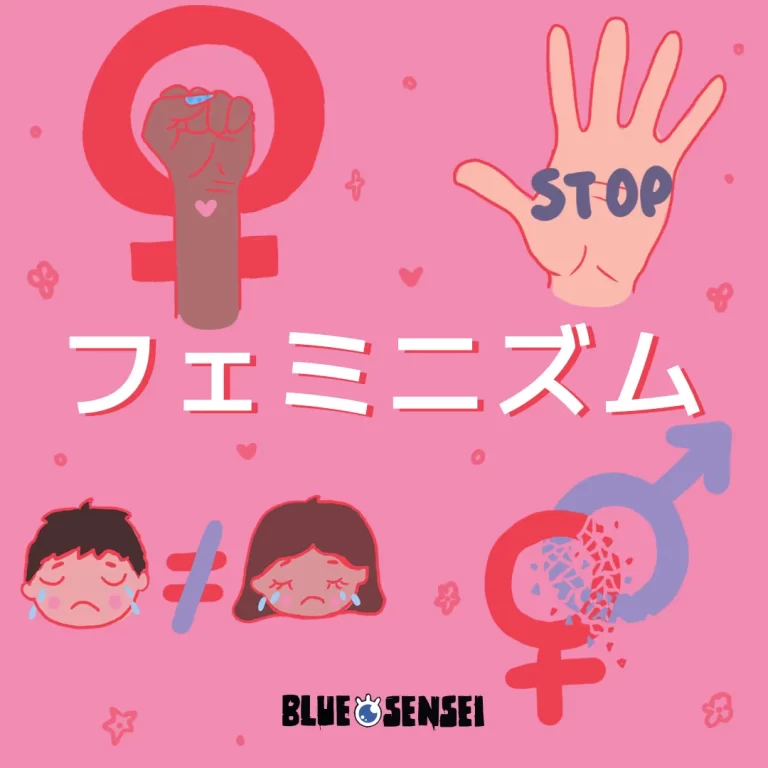
Exploring Japan’s Onsen and Sentou Culture
In this blog post, we’ll explore the historical roots of ninjas, their cultural impact, and how they’ve evolved in popular culture.
This article was generated by AI using the original script from the podcast “Feminism in Japan by Kaori & Han” recorded on August 25, Sunday at 18:00.
In recent weeks, feminism has become a topic of conversation among us. Initially, we thought of discussing something light, but upon a suggestion, we decided to tackle feminism—a subject far from light, especially in the context of Japan. While we won’t delve into academic discussions or deep sociological analysis, this blog aims to offer a surface-level understanding of how feminism is perceived and practiced in Japan today, combined with some personal reflections.

At its core, feminism globally advocates for gender equality, aiming to dismantle systems of oppression that affect both women and men. However, Japan’s journey with feminism has been quite different compared to many Western countries. Historically, women in Japan have often been portrayed within specific societal roles—mainly as “good wives” and “wise mothers” (良妻賢母, ryōsai kenbo). This notion has persisted over generations, and even in modern Japan, traces of this ideology remain evident.
To understand modern feminism in Japan, it’s essential to look back at the Meiji Era (1868-1912), where the role of women was heavily influenced by nationalistic propaganda. The image of the “good wife and wise mother” was created to mold women into caregivers, confined to domestic roles. Education for women was encouraged, but only so they could better serve their husbands and raise children. Career aspirations or independence were rarely considered viable paths for women.
Despite changes post-World War II, including women gaining the right to vote in 1946, traditional gender roles have persisted. Feminism in Japan has made strides, but the movement remains fragmented and less visible than in many other nations.
Let’s now look at the role of women in modern Japan. Although Japan is a highly developed country, it ranks low in gender equality. In 2023, Japan placed 125th out of 146 countries in the World Economic Forum’s Global Gender Gap Report, which measures disparities in economic participation, education, health, and political representation.
The most apparent form of inequality is in economic participation. Women in Japan earn about 24% less than their male counterparts. Additionally, only 15.5% of managerial positions are held by women. However, it’s worth noting that many women choose not to climb the corporate ladder due to societal expectations or personal desires rooted in traditional gender roles.
In Japan, many women still feel pressure to marry and leave their jobs once they’ve reached a certain age—often around 25 to 30. This cultural expectation makes it difficult for women to maintain long-term careers. Companies in Japan have long operated under the assumption that women will eventually leave the workforce to start families, creating a glass ceiling that prevents many women from progressing in their careers.
While the participation rate of women in the workforce is about 71%, many women are still employed in part-time or temporary jobs with lower wages and fewer benefits. This ties back to the concept of “good wife, wise mother” still influencing societal expectations, even in an age of increasing gender awareness.
Japan has not seen the same large-scale feminist movements that other countries have experienced. There are feminist voices, but they are not mainstream, and public awareness of gender equality remains relatively low. This is partly due to Japan’s cultural aversion to confrontation and activism. Most Japanese people tend to avoid challenging established norms and prefer harmony, which can make pushing for change difficult.
That said, there have been efforts to address issues like workplace harassment and the low participation of women in politics and leadership roles. For example, the #MeToo movement had some impact in Japan, though it did not gain as much momentum as it did in the West. Additionally, Japan has implemented laws to reduce workplace discrimination, though their effectiveness remains to be seen.
Feminism in Japan is still a growing conversation. While the country has made strides in improving the status of women, much work remains. Cultural norms, societal expectations, and a deep-rooted emphasis on traditional roles for women all contribute to the slow pace of change. Nevertheless, there are signs of progress. Younger generations, especially those who have lived or studied abroad, bring fresh perspectives on gender equality and are gradually influencing societal norms.
As Japan continues to navigate its path forward, it’s essential to remember that feminism isn’t just about women—it’s about creating a society where both men and women can live freely without being confined by outdated roles.

In this blog post, we’ll explore the historical roots of ninjas, their cultural impact, and how they’ve evolved in popular culture.

In this blog post, we’ll explore the historical roots of ninjas, their cultural impact, and how they’ve evolved in popular culture.

We’re stepping into the chilling world of Yotsuya Kaidan (四谷怪談)—arguably Japan’s most iconic ghost story.

Welcome back to another cultural deep dive with Blue Eye Sensei! Today, we’re exploring one of Japan’s most important and spiritually rich festivals—Obon (お盆).

We will explore the fascinating world of Japanese yokai, the supernatural creatures deeply embedded in Japanese culture.

I’m diving into a topic that has always fascinated me: the rich variety of superstitions in Japan!
This website uses cookies so that we can provide you with the best user experience possible. Cookie information is stored in your browser and performs functions such as recognising you when you return to our website and helping our team to understand which sections of the website you find most interesting and useful.
Strictly Necessary Cookie should be enabled at all times so that we can save your preferences for cookie settings.
If you disable this cookie, we will not be able to save your preferences. This means that every time you visit this website you will need to enable or disable cookies again.